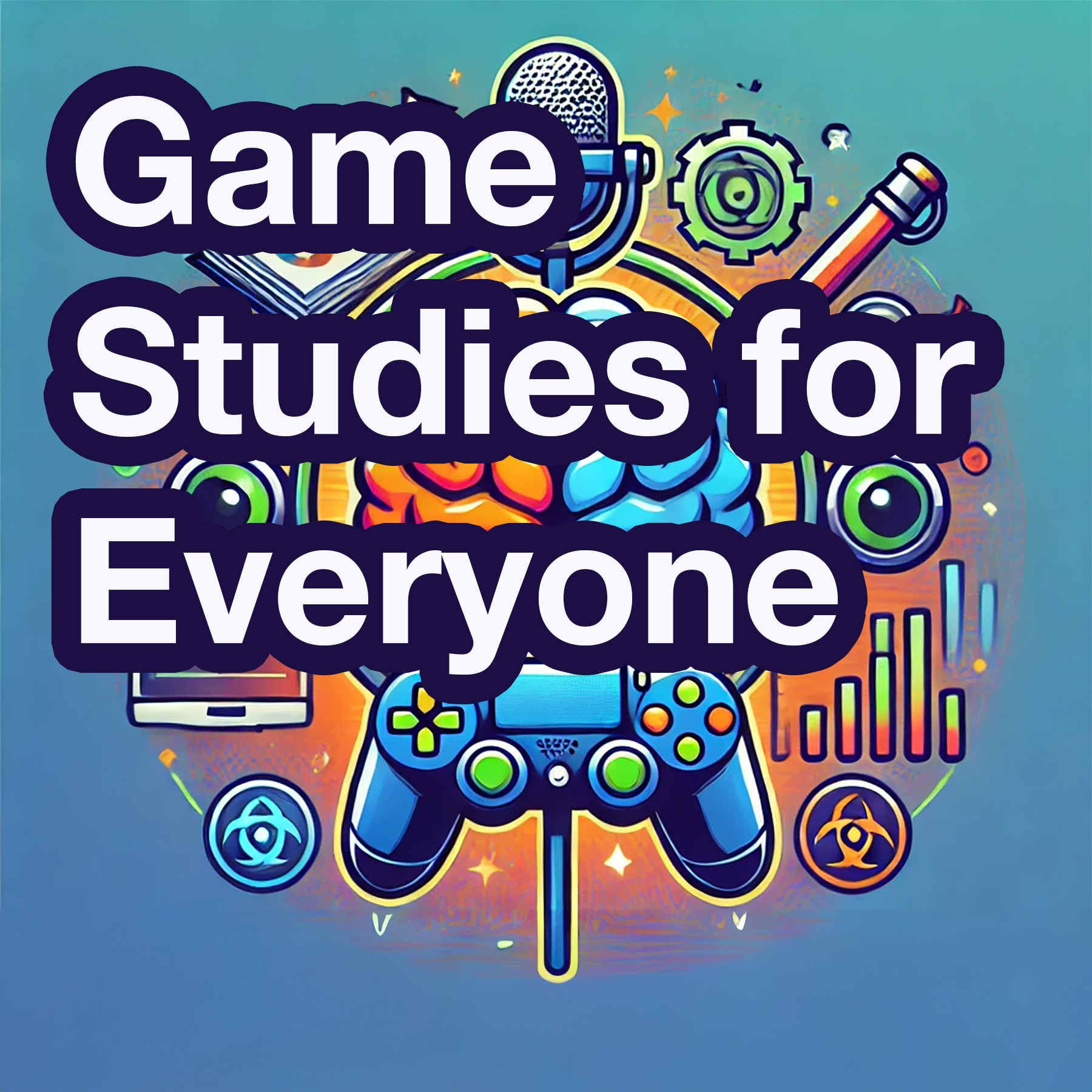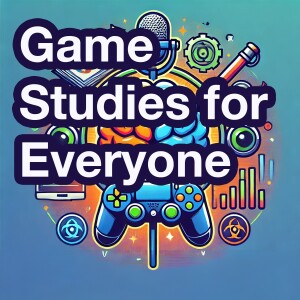
726
Downloads
40
Episodes
Welcome to Game Studies for Everyone, the podcast where complex game research becomes accessible to everyone! Join our co-hosts as they break down cutting-edge research in games and interactive media. Each 15 to 20 minute episode transforms academic findings into bite-sized, engaging discussions that everyone can enjoy. Whether you’re a gamer, developer, or just curious about the science behind the games you love, Game Studies for Everyone is your go-to source for easy-to-digest insights. No jargon, just fascinating research from peer-reviewed, published research in the humanities, computer science, narrative and more. Learn what’s new and how is shapes the way we play, learn, and develop. Hosted by Eliza Jiqiren and Nat Weizenbaum.
Episodes

Monday Oct 07, 2024
Monday Oct 07, 2024
In this episode of GS-E, we dive into a fascinating intersection of play and protest. What does it mean to play as an act of rebellion? We’ll explore how parkour, skateboarding, and skywalking defy authority and embrace civil disobedience, both in the real world and in video games. Using examples from popular parkour and skateboarding games, we break down how risky-play challenges societal norms and authority figures. Based on a paper by Professor Lindsay Grace.

Monday Oct 07, 2024
Playing the System: Immigration, Games, and Investigative Journalism
Monday Oct 07, 2024
Monday Oct 07, 2024
In this episode of GS-E, we explore how interactive narratives and newsgames explain the complexities of the U.S. immigration system. Discover how a game, based on the Panama and Paradise Papers, uses persuasive play to unpack systemic biases in immigration policies between 2017–2021, reaching over 45,000 players with its engaging, investigative approach. Based on the paper https://dl.acm.org/doi/abs/10.1007/978-3-031-47658-7_4

Monday Oct 07, 2024
Persuasive Play: Changing Society Through Games
Monday Oct 07, 2024
Monday Oct 07, 2024
In this episode, we explore how persuasive games can influence societal change. Learn how games designed with macro, micro, and meta-persuasive strategies challenge norms and offer new ways to impact politics, culture, and more. From Grace, L.D. 2021, Micro, Macro and Meta-Persuasive Play to Change Society, in Persuasive Gaming in Context. Amsterdam University Press, 2021.

Monday Oct 07, 2024
Leading Social Change Through Games
Monday Oct 07, 2024
Monday Oct 07, 2024
In this episode, we explore how games can lead social change by encouraging problem-solving, shifting perspectives, and inspiring action. Learn how playful strategies help tackle complex societal issues across education, policy, health, and more. Grace, L. 2024, The Patterns of Games for Leading Social Change. Journal of Leadership Studies. https://doi.org/10.1002/jls.21880

Monday Oct 07, 2024
Gaming Against Fake News: 5 Minute Games You Should Know
Monday Oct 07, 2024
Monday Oct 07, 2024
In this episode, we explore how the game Factitious helps players sharpen their news literacy skills. Discover how over 500,000 players identified fake news, and the surprising patterns revealed about age, education, and performance in fighting misinformation through playful learning. Based on https://dl.acm.org/doi/10.1145/3290607.3299046

Tuesday Oct 08, 2024
Indie Games as Poetry: A New Way to See Play
Tuesday Oct 08, 2024
Tuesday Oct 08, 2024
In this episode of Game Studies for Everyone, we explore a fascinating perspective from the 2011 Digital Games Research Association Conference, : Are indie games the poetry of the gaming world? We'll dive into how independent games use poetic elements like meter, metaphor, and personification to create unique player experiences. Discover how comparing game design to literary forms like sonnets and haikus opens up a whole new way of understanding and classifying games, beyond just genres or themes.
Based on:
Grace, Lindsay D. "The Poetics of game design, rhetoric and the independent game." Proceedings of DiGRA 2011 Conference: Think Design Play. 2011.
https://dl.digra.org/index.php/dl/article/view/580

Wednesday Oct 09, 2024
Breaking the Rules: How Critical Indie Games Challenge the Status Quo
Wednesday Oct 09, 2024
Wednesday Oct 09, 2024
In this episode of Game Studies for Everyone, we explore the critical design movement in indie games, led by visionary artists like Nicky Case, Lindsay Grace, and Zach Gage. These games push the boundaries of traditional game design, using gameplay to critique social conventions and question player assumptions. We’ll break down the key traits of critical games—social vs. mechanical critique, delivery styles, and the role of humor—while highlighting examples that challenge the way we think about games.
Source Grace, Lindsay. "Critical games: Critical design in independent games." Proceedings of DIGRA. 2014.

Friday Oct 11, 2024
Friday Oct 11, 2024
In this exciting debut of our series on misinformation and disinformation, we dive into the world of disinformation games—engaging, thought-provoking interventions designed to combat the spread of fake news. We'll explore how these games are harnessing the power of play to change the way we interact with media, focusing on two major communication theories: Inoculation Theory and Transportation Theory. These theories provide insight into how narratives and strategic exposure can protect and shift player behavior. Featuring the wildly popular games like Harmony Square and Bad News, this episode breaks down how disinformation spreads, why we fall for it, and how game design can help us fight back. Whether you’re a gamer, a media enthusiast, or simply curious about the impact of fake news, this episode is for you. Stay tuned as we uncover the psychology and strategy behind these innovative educational tools!
Tune in for a deep dive into the fusion of game design, psychology, and the fight against misinformation!
To understand the science, read https://hdl.handle.net/10125/103204

Game Studies for Everyone
Game Studies for Everyone, or GS-E, is the podcast series that brings cutting-edge research in games and game studies to everyone! We take peer-reviewed, academic studies and break them down into bite-sized, engaging episodes. Whether you're a gamer, student, or just curious, Game Minds makes complex research fun and accessible. Learn how games impact society, culture, and innovation—all in quick, digestible episodes designed for listeners on the go.
